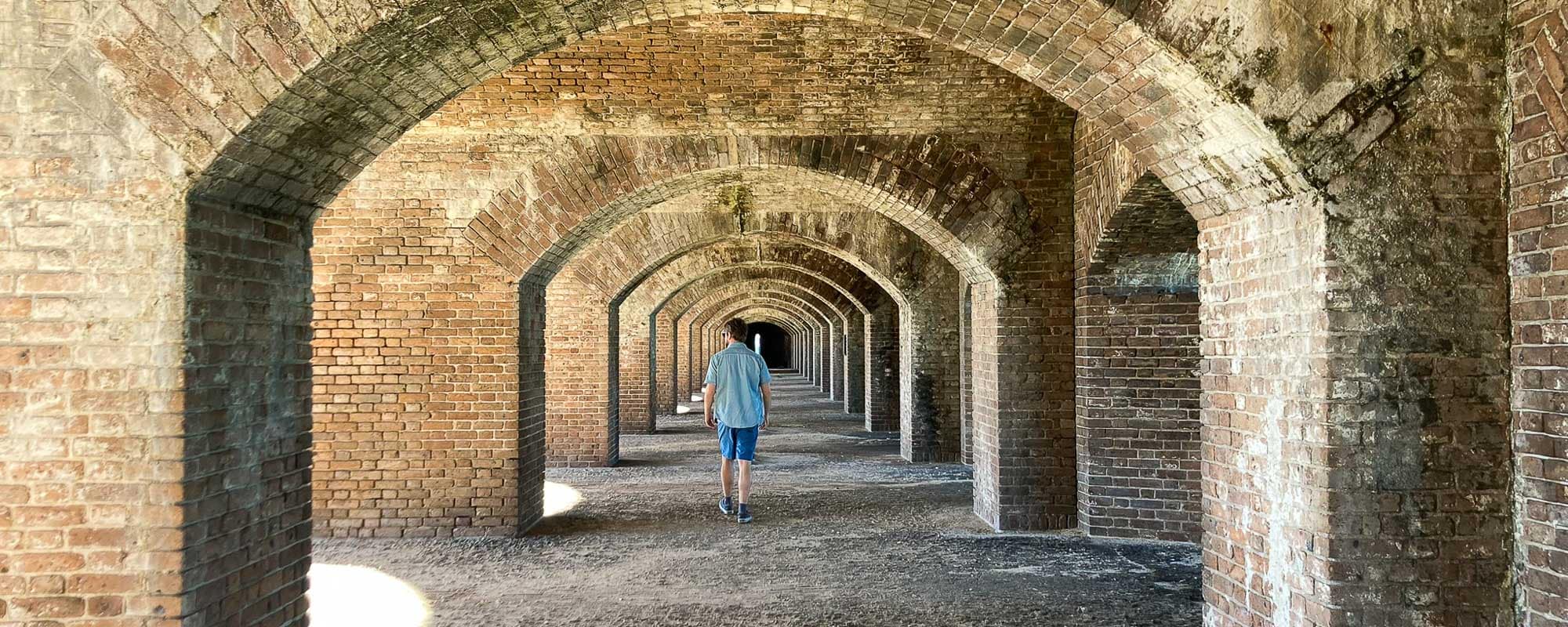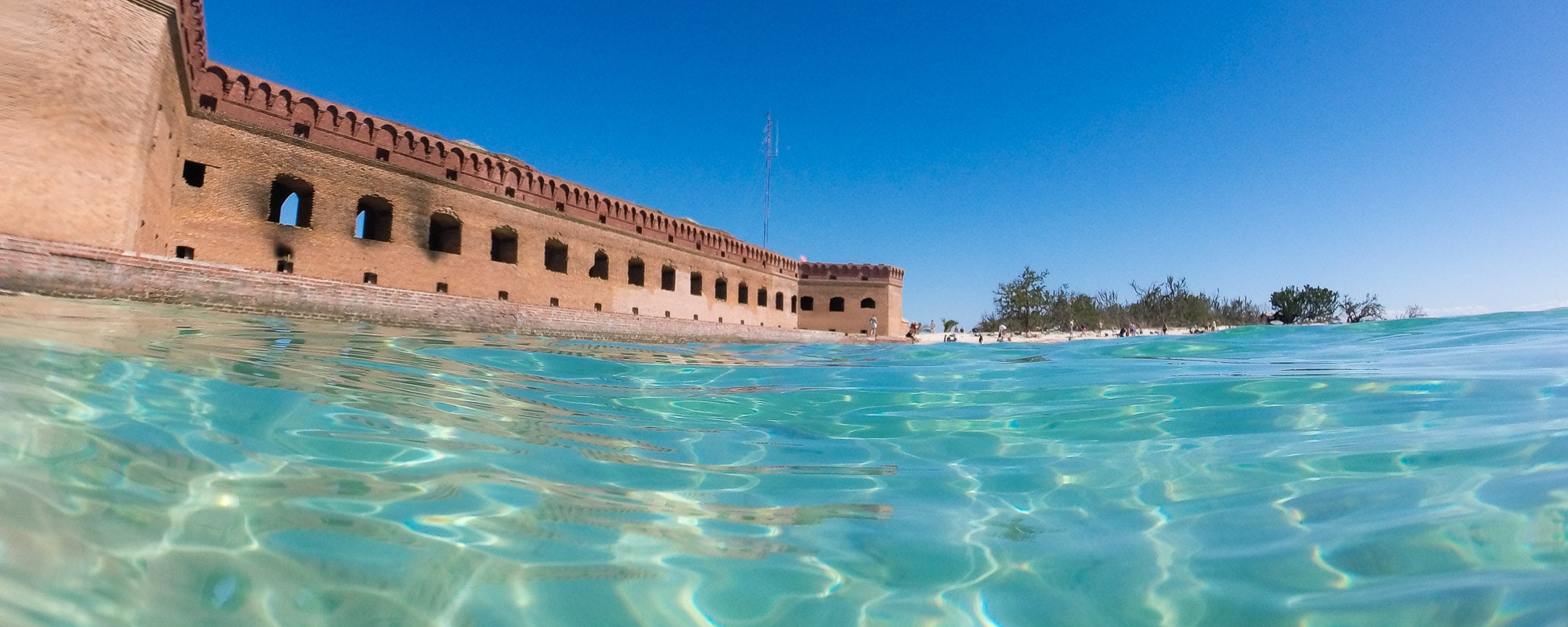One of the remotest U.S. national parks, Dry Tortugas National Park is 70 miles west of Key West and is only accessible by seaplane or boat. It encompasses mesmerizing coral reefs, magnificent beaches and massive Fort Jefferson.
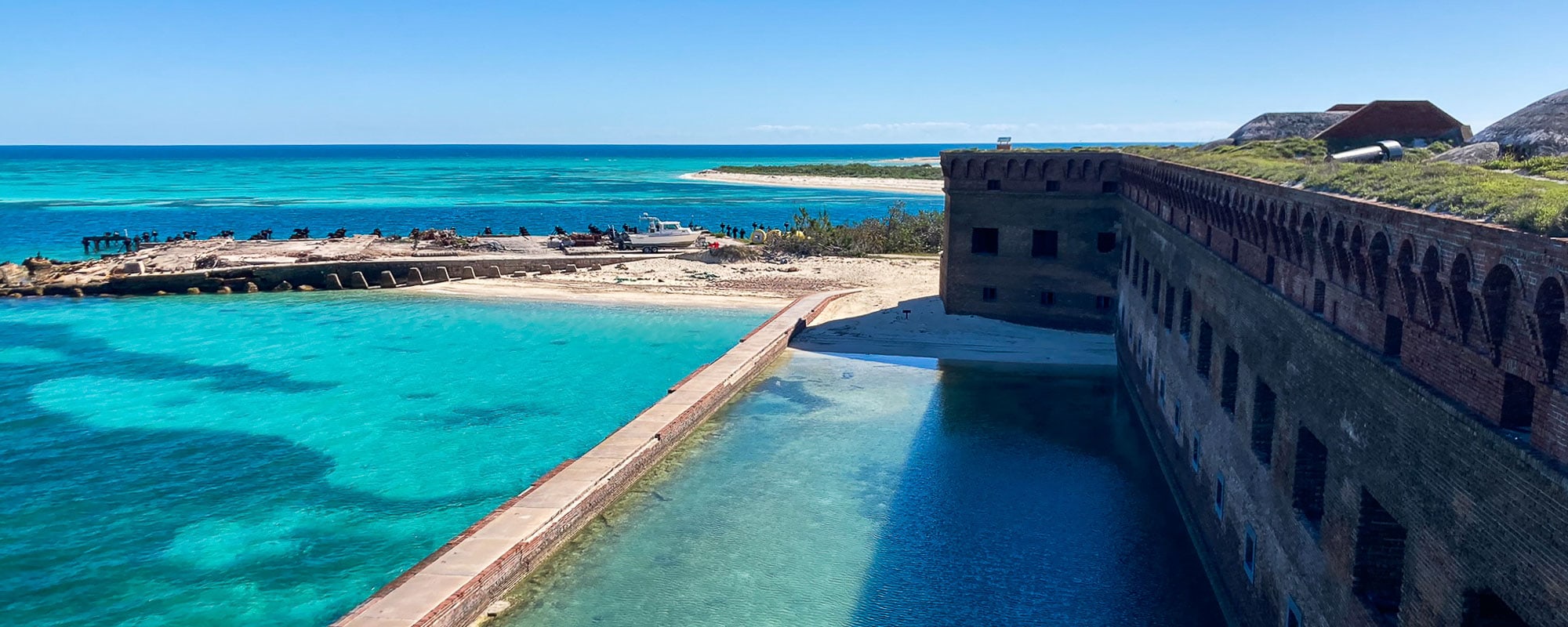
Almost 70 miles west of Key West, the famous tourist destination in the Florida Keys, lies one of the most unusual national parks in the United States. Here, a remote archipelago harbors an abundance of sea life and rare birds, as well as a giant brick fortress in the middle of the Gulf of Mexico.
The first Europeans to visit this collection of seven tiny islands were Spanish explorers in the early-1500s. They named the archipelago “Las Tortugas” (The Turtles in English) after the numerous sea turtles they saw. Later on, the name was changed to “Dry Tortugas” on nautical maps to indicate the absence of freshwater on the islands.
The United States government purchased Florida from Spain in 1822 and quickly realized the strategic significance of the Dry Tortugas. Located at the mouth of the Gulf of Mexico, the archipelago offered protection to the southeastern flank of the nation, which was barely 50 years old at the time. The U.S. government also considered the Dry Tortugas essential to fight the pirates of Caribbean.
In 1846, construction began on what was to become one of the largest brick buildings ever built: gigantic Fort Jefferson on Garden Key. Even though it’s literally on a small island in the middle of the sea, the fort features an actual moat, too. Nicknamed the “American Gibraltar,” the massive fortress was, however, never completed.
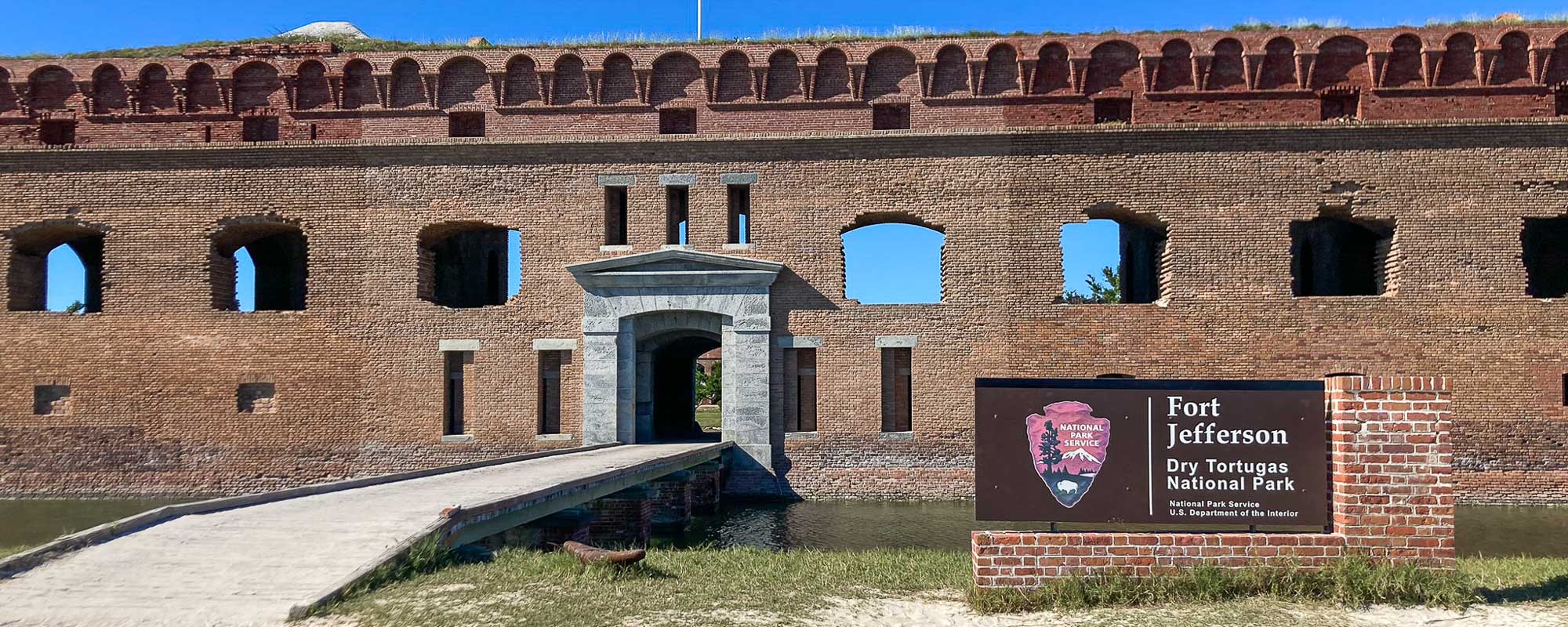
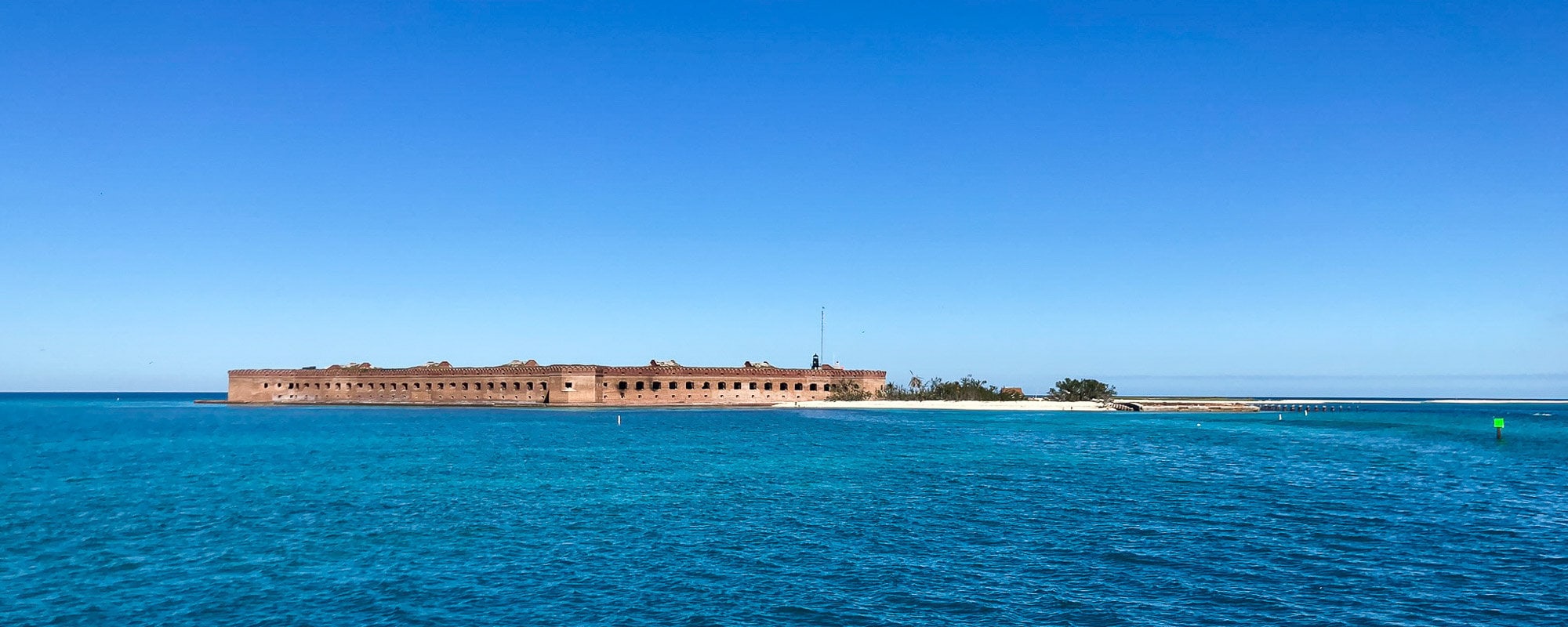
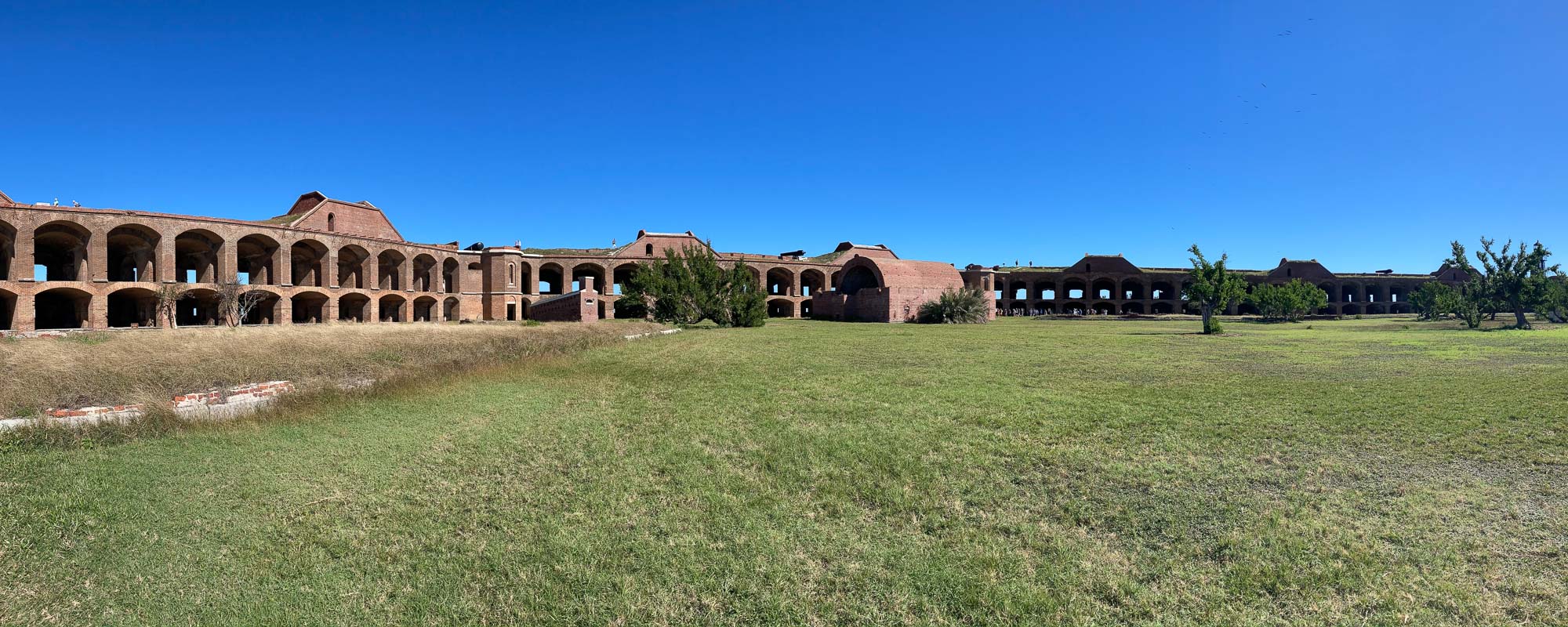
Despite being unfinished, Fort Jefferson did serve as a Union prison during the Civil War. It was later abandoned by the U.S. Army and made a national park in 1935.
Nowadays, Dry Tortugas National Park isn’t as much a marine stronghold as it is a tourist destination. Due to its extremely remote location—the park is only accessible by boat or seaplane—this is one of the least visited national parks in the United States.
Those who do come here, however, get to immerse themselves in a marvelous tropical paradise.
Day visitors can explore Fort Jefferson, walk the Moat Wall, sunbathe on pristine sand beaches, and snorkel in aquamarine waters home to glorious coral reefs.
Marine life abounds here, from innumerable fish species to nurse sharks, sea turtles, lobsters, sponges and sea anemones. The islands, on the other hand, provide a breeding ground for numerous rare birds, as well as a convenient stopping point for migratory birds.
Camping is possible in Dry Tortugas National Park, too, though. At Garden Key, just outside of Fort Jefferson, a small campground offers one of America’s remotest camping experiences. In fact, you might even be the only visitor spending the night here, giving you the unique opportunity to be alone in an entire national park for a night.
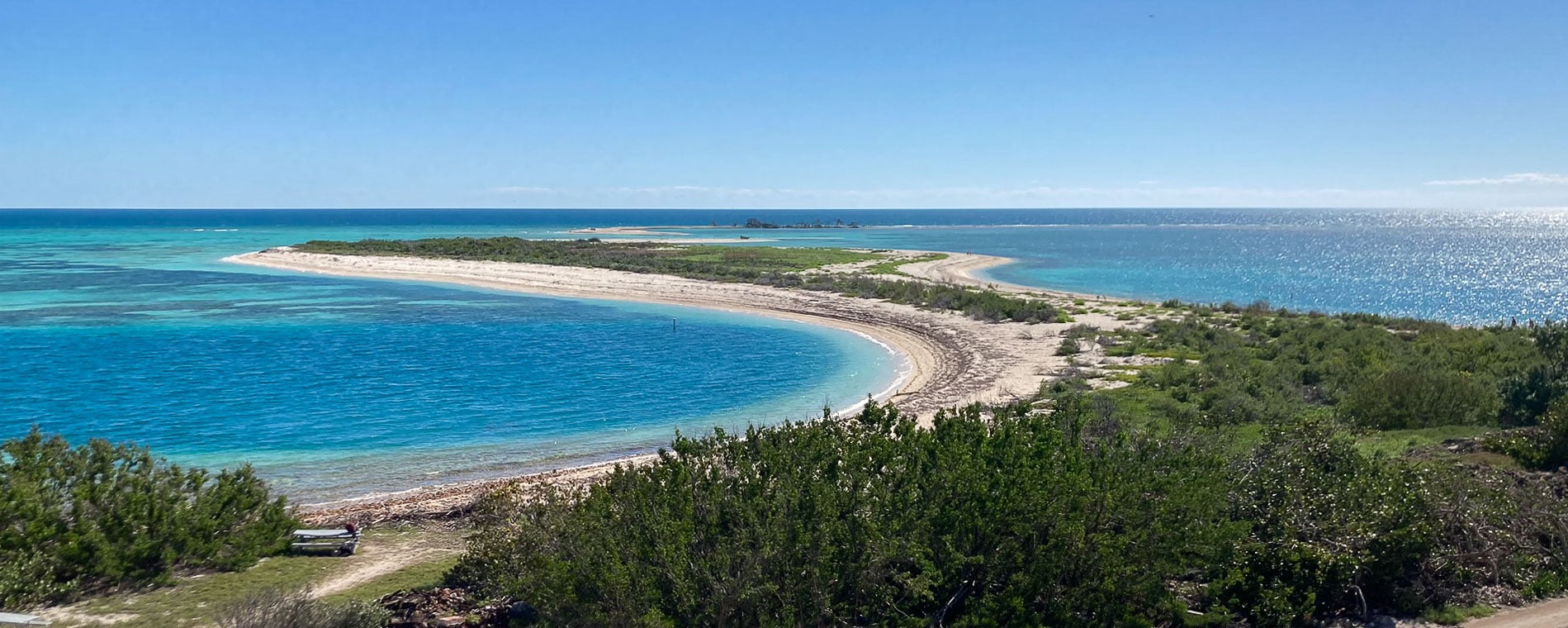
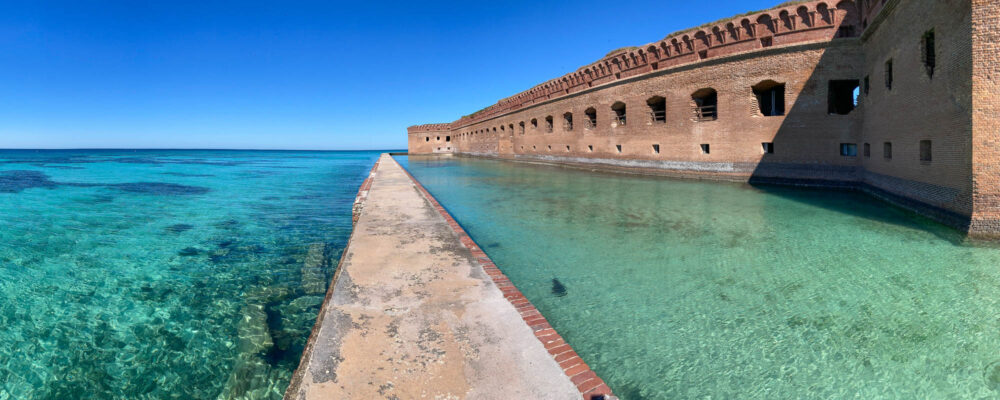
This Dry Tortugas National Park information page contains affiliate links. You can read more about our Terms of Use / Disclosure here.
Highlights of Dry Tortugas National Park
The list of individual Dry Tortugas National Park highlights isn’t particularly long, but it does include some truly amazing things.
The vast majority of visitors travel to the park on the Yankee Freedom catamaran from Key West, arriving at and spending a few hours on Garden Key. This is where you’ll find Fort Jefferson, beaches, breeding grounds of birds and sensational snorkeling opportunities.
- Tour of Fort Jefferson
- Walk on the Moat Wall
- Seeing the iconic Fort Jefferson Harbor Light
- Bird watching
- Snorkeling the coral reef off Fort Jefferson Beach

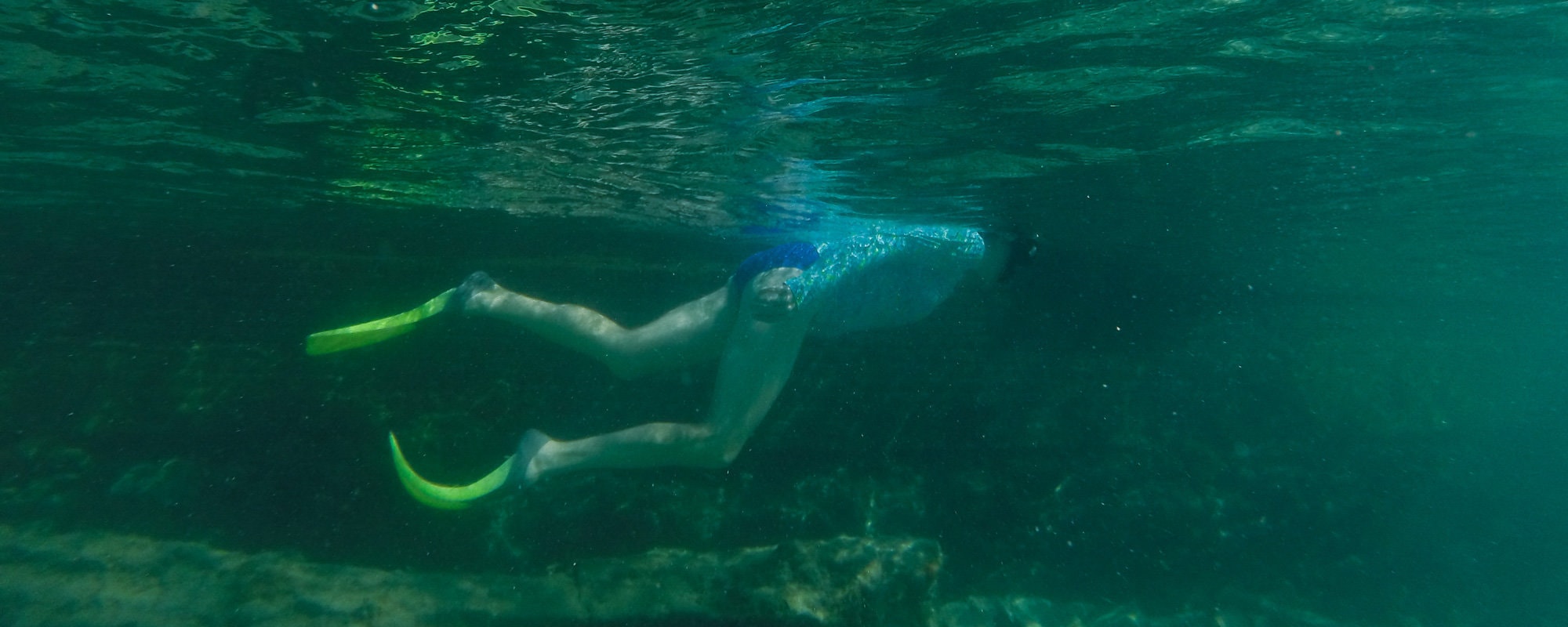
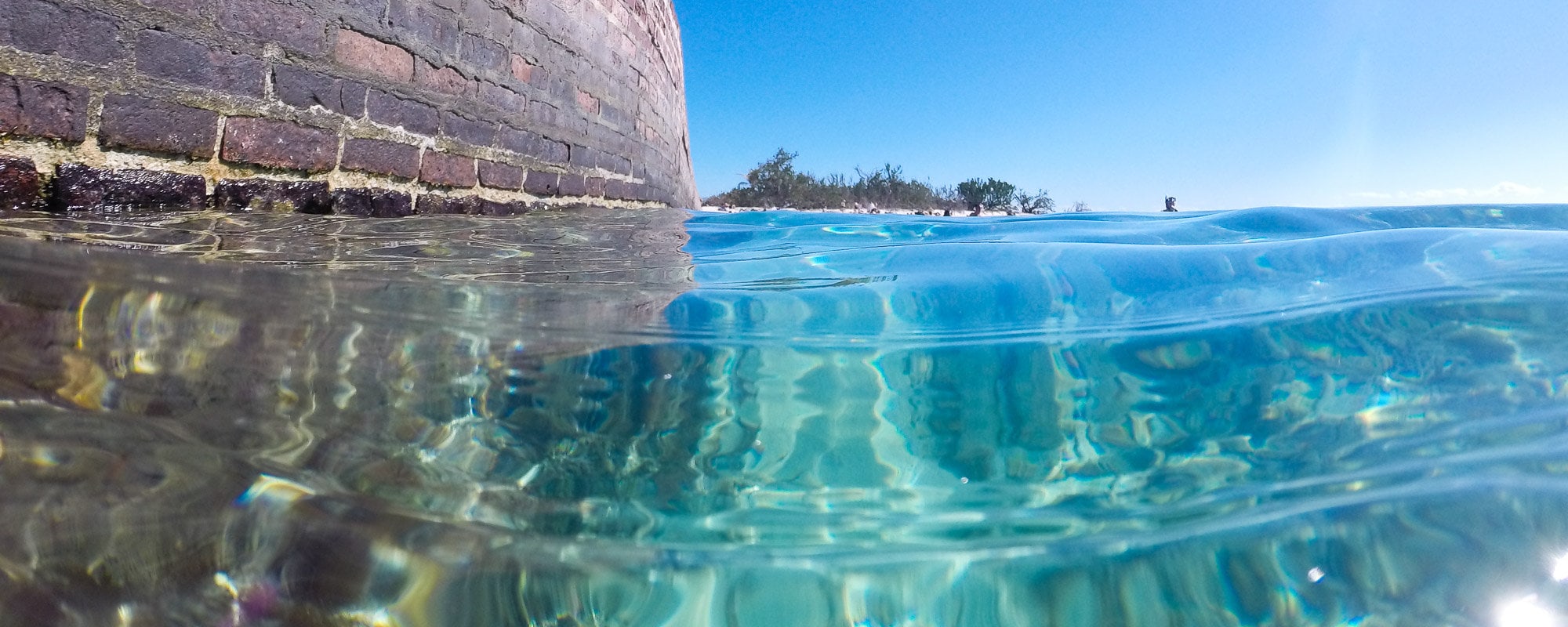
Useful Info
Location: Western end of the Florida Keys in southern Florida
Nearest Towns: Key West
Area: 100 square miles (64,000 acres)
Annual Visitors (2022): 78,488
Features: Seven tiny islands in the Gulf of Mexico west of Key West, spectacular coral reefs, a gigantic 19th-century brick fortress, numerous bird species, tropical fish and other marine creatures
Top Attractions: Fort Jefferson and the Moat Wall, Fort Jefferson Harbor Light, coral reefs, Fort Jefferson Beach, birds and marine life
Popular Activities: Touring the fort, snorkeling and swimming, sunbathing, photography, fishing, wildlife viewing
Suggested Stay: 1 day
Campgrounds:
- Garden Key Campground (10 sites)
More Information:
Nearby National Parks:
- Biscayne National Park, Florida
- Everglades National Park, Florida
- Virgin Islands National Park, U.S. Virgin Islands
